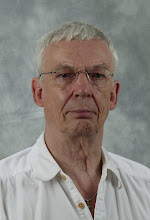Pope Benedict ended his visit to the Czech Republic by pointing to the collapse of the Soviet Union as an example of the fate that awaits those who choose power over God. It seems the pope has sunk his teeth into a half truth. Power is problematic, but you don’t have to deny God to pursue it. With or without God, the consequences can be devastating. His own church is a shining example of this.
In the fourteenth century, the church discovered that it has a problem. In villages throughout Europe, the influence of the local priest was undercut by wise women and healers. If you were sick, all a priest could do was pray over you. A wise woman, on the other hand, could make you better.
The wise women possessed another talent, they could cast spells. It was very democratic No matter how powerful you were, you’d think twice before messing with one of your lesser souls for fear he’d head for the nearest healer and lay a curse on you.
For the church, the solution was simple—declare the wise women witches and burn them at the stake. With their competition toast, the priests would have a free hand. The church even published the Malleus Maleficarum, a forerunner of our Diagnostic & Statistical Manual of Mental Disorders. Both helped authorities root out deviant behavior. (Granted, we’re more civilized; instead of the stake, we medicate.)
Estimates of how many women were burned vary wildly. Record keeping in those days was a little sloppy, so it is doubtful an accurate count will ever be arrived at. Apologists claim the number was as low as 60,000 while others put it as high as 9 million.
Whatever the number the end result was a civilized Europe in which the sick were prayed over with gusto.
While it was civilizing Europe, this God-driven power was also bringing civilization to South America where indigenous populations were given a choice. If they refused to convert to Christianity, they were burned; it they converted, they were worked to death in the silver and gold mines, all to the greater glory of God.
Any movement, be it religious or secular, becomes deadly when it hardens into an ideology that believes it is the sole possessor of an absolute truth. All ideologies, when they attain political power, turn nasty because not everybody buys into them. Consequently, heretics and counterrevolutionaries must be slaughtered if the purity of the Truth is to be maintained.
Power’s most corrupting influences is the paranoia that accompanies it. As soon and individual attains power, he comes to realize that others are gunning for his position. If the individual is an ideologue, he feels compelled to eliminate not only those who oppose him, but those whom he thinks oppose him.
We see this phenomenon at work in the Beltway where we feel exposed and vulnerable because we are a military superpower. We’re like the fastest gun in the west that is constantly looking over his shoulder because he knows there are legions of young kids looking to knock him off his pedestal. (Actually, the Swiss have the right idea: be the slowest gun in the west and make a fortune selling pocket knives.)
Getting back to the pope, he shares a talent common to many ideologues, a selective memory when it comes to history. It makes things a lot easier.
Thursday, October 1, 2009
Subscribe to:
Post Comments (Atom)


3 comments:
WTF? The DSM as an ancestor of the Witches' Hammer? Seriously? Go take an Abnormal Psych course. The DSM is based on research, not fairy tale fantasies. Granted there are politics involved, but it's also inherently self-correcting because of the processes that underlay it.
Those with PhDs in Psychology are probably constitutionally unable to see their own 'selfs' as just another variety of True Believer....in a virtual world-o'-hurt entirely populated with them. Nevertheless, "mental disorder" is right up there with "witchcraft" in the No-PERSONS-land of make-believe.
The thing about "research" is that it will inevitably reveal whatever its practitioners are determined to 'find.' This is "The Known Universe," after-all.
HokaHey!
The line that seperates science andideology is nonexistant. Rather there is a spectrum; at one end is pure science and at the other pure ideology. All else between is an admixture of the two.
The Malleus was no based on fairy tales. It was well reasoned using rigorous logic. The premises from which it resons were squirlly. Howver the same could be said for psychology. Perhaps its premises are equally as squirlly, ie, the human psyche is quantifiable.
I'm willing to accept psychology as a healing art, but not as a science.
Post a Comment